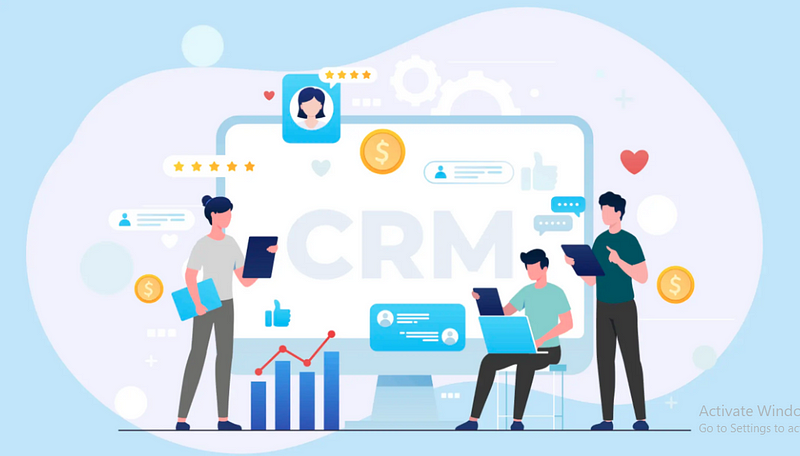
Client relationship building and smooth candidate management have always been a difficult task for recruiters and HRs. But why?
Because getting things done is tough, but maintaining them is even more challenging.
But not anymore. Here comes the saviour: Recruitment CRM Software!
Yes, you heard it right.
With the best Recruitment CRM Software, you can organise all your candidate and client information in one slick interface, making it a breeze to manage your talent pipeline.
Plus, you’ll never miss a beat with automated reminders and notifications keeping you updated and on top of your game.
Sounds cool, right?
But here comes the 2nd struggle. Which one is the best out of so many recruiting CRM software list? Too many options make you overwhelmed, and the anxiety hits you harder.
Well, not anymore. Buckle up.
This blog is created just for you to solve your struggle.
Here, you’ll learn about the list of best recruitment CRM Software and their features, pros and cons, etc.
What are you waiting for? Let’s explore.
What is Recruitment CRM Software?
Recruitment CRM Software is a computerised system that will help you smoothly and efficiently manage your clients and candidates.
The Recruiting CRM system includes features such as candidate sourcing, applicant tracking, communication tools, and pipeline management to facilitate interactions with potential Candidates.
However, client relationship management helps businesses track leads, manage sales pipelines, and nurture client relationships through various communication channels.
Which is typically used by sales and marketing teams to manage interactions and relationships with existing and potential clients or customers.
It also helps recruitment professionals to track real-time and projected revenue and easily calculate incentives for your hiring teams. You can explore fundamentals and trends in our detailed guide for recruiting CRM.
11 Best Recruitment CRM Software List for Your Hiring Business
Dive into the world of candidate relationship management with this 11 top recruitment CRM software list. They’ll act as your personal matchmaker, pairing you with the perfect candidates. These tools not only streamline your hiring process but also nurture these essential relationships.
1. iSmartRecruit
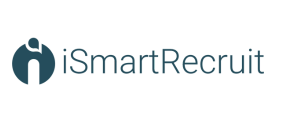
Want to engage and manage clients and candidates without feeling the burn?
Then, congratulations because you just found a pot of gold.
iSmartRecruit makes your recruitment and client/candidate management faster and smarter.
iSmartRecruit’s Recruitment CRM Software is designed to streamline your hiring process from start to finish. Build a centralised candidate database and leverage automated sourcing tools to find top-tier talent.
The platform also provides integrated communication tools, customisable dashboards, and robust analytics for tracking candidate progress and recruitment metrics.
It has features like career site integration, a candidate portal, and collaborative hiring workflows. iSmartRecruit fosters a seamless and positive experience for both recruiters and candidates.
It also integrates with popular job boards and social media platforms, making it easier to source and attract qualified candidates.
So, manage your relationship with candidates and clients in a snap.
Key Features:
- Candidate Tracking
- Online Assessment and Evaluation
- Candidate/Client Relationship Management
- Candidate/Client Self-Service Portals
- Client Job Tracker
- Security and GDPR Compliance
- Confidentiality and Privacy Controls
- Advanced Search and Filtering
Pros:
- Centralised candidate database and communication (easy candidate management)
- Automated sourcing tools and talent pool management (efficient recruitment)
- Integration with job boards and social media (wider talent reach)
- Customisable recruitment dashboards and analytics (data-driven decision-making)
- Revenue tracking and compliance features (financial visibility and security)
Cons:
- Integrations and functionalities might come at an additional cost
- A user interface may require some learning and adaptation
Pricing:
iSmartrecruit offers customisable pricing, which is exclusively personalised for your unique needs. Talk to sales at sales@ismartrecruit.com to learn more about it.
Free trial: Available on request
Capterra Review: 4.6
2. Manatal
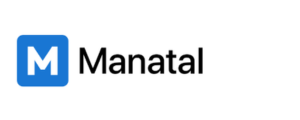
Want to fine-tune with your candidates and clients? Through a single, centralised platform?
Then Manatal is your go-to place.
Manatal has a recruitment CRM software that streamlines the entire recruitment process for your agencies and HR departments.
Seamlessly integrate CRM and ATS functionalities to manage the candidate relationships.
It centralises all client-related activities, from managing leads and clients to placement management and revenue tracking.
Manatal also provides a commercial pipeline specifically designed for recruitment professionals.
Features like email integration, a collaborative client portal, and onboarding management help you collaborate seamlessly with clients and close deals faster.
Plus, Manatal’s recruitment CRM is included with all plans, so you can get started without any additional costs.
Key Features:
- Candidate sourcing
- Recruitment CRM
- Data privacy compliance
Pros:
- All-in-one solution: Combines ATS and CRM features for efficient recruitment management.
- LinkedIn Integration: Simplifies lead generation and contact import.
- Collaboration and Revenue Tracking: Enhances teamwork and provides clear financial insights.
Cons:
- Learning Curve: It may require time to adapt to the software and its features.
- Limited Customization: Advanced users might find customisation options lacking.
- No Mobile App: The absence of a dedicated mobile app could affect on-the-go accessibility
Pricing:
- Professional plan — $15 — Per month/user
- Enterprise plan — $35 — Per month/user
- Enterprise pulse plan — $55 — Per month/user
Free trial: Yes (Offers 14 days free trial)
Capterra Review: 4.7
3. RecruiterFlow
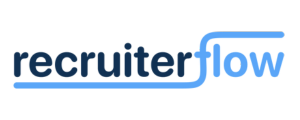
RecruiterFlow is here to maintain your recruitment leads FLOW. But how?
By having a one-stop shop to streamline your entire recruitment sales process.
It revolutionises the way you manage leads, nurtures client and candidate relationships, and close deals swiftly.
It offers visual deal pipelines, ensuring you never lose track of a lead, and enables you to see exactly how many deals you’ve won.
The client portal feature allows for seamless collaboration with clients, providing them with a fully branded space to access information.
RecruiterFlow also promotes collaborative selling, fostering stronger client relationships by providing visibility into sales conversations.
The platform automates various recruitment sales tasks and integrates with everyday apps, bringing all the tools you need into one convenient location.
Key Features:
- Client Portal
- Automate phone screen scheduling
- Relationship-focused
- Unified Communication
Pros:
- Comprehensive sales automation and client management features.
- Collaborative tools to enhance client relationships and team communication.
- Integration with everyday apps for streamlined processes.
Cons:
- It may not cater to the specific needs of certain industries beyond recruitment.
- Pricing might be a consideration for small businesses or start-ups.
Pricing:
- Base — $99 — Per month/user
- Pro — $109 — per month/user
- Advanced — per month/user
Free trial: Yes (Offers 14 days free trial)
Capterra Review: 4.8
4. SmartRecruiters
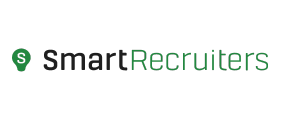
Developing positive relationships with candidates is not enough; nurturing is also crucial.
Well, SmartRecruiters can help you with that. It goes beyond just attracting candidates.
You can create talent pools and nurture them with targeted content. This will keep potential hires engaged while strengthening your employer’s brand.
Additionally, it gives users a clearer understanding of how well their recruitment campaigns are performing by keeping all candidate information in a single record throughout the CRM and ATS systems.
This ensures a steady flow of qualified candidates while giving you valuable insights to make data-driven decisions.
Key Features:
- Talent pool
- Talent Sourcing
- Chatbot recruiting
- onboarding
Pros:
- Proactive talent sourcing and nurturing
- Customisable talent pools and branded campaigns
- Simplified compliance and performance tracking
Cons:
- Limited ATS integration options
- The potential learning curve for new users
- It may not be suitable for smaller businesses with basic recruitment needs
Pricing: Contact sales
Free trial: No
Capterra Review: 4.2
5. Recruit CRM
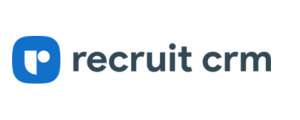
No more sticky notes cluttering up your desk. With Recruit CRM, you can organise all your clients’ and candidates’ information in one smooth interface.
RecruitCRM streamlines your entire client journey.
The platform offers client management features such as appointment scheduling, automatic email sending, and note creation, along with a built-in system for receiving client feedback on candidates.
Their handy notes feature is to make quick notes about candidates and clients. Small but effective!
Plus, it lets you generate and manage invoices with ease, keeping your finances organised.
Integrate your Google calendar for automatic reminders and stay on top of every meeting and deadline.
RecruitCRM puts powerful tools at your fingertips to nurture existing client relationships and close more deals.
Key Features:
- Candidate matching
- Chrome extension
- AI resume parsing
- Boolean Search
Pros:
- Customisable sales pipeline for better revenue forecasting
- Invoice generation and tracking
- Calendar integration for improved scheduling
- Built-in client feedback system
Cons:
- May not integrate with all existing systems
- Limited reporting and analytics capabilities
- No mobile app is available
Pricing:
- Pro — ₹ 2,500 — /user /month
- Business — ₹ 3,500 /user /month
- Enterprise — ₹ 5,000 /user /month
Free trial: Yes
Capterra Review: 4.9
6. Zoho Recruit
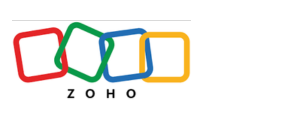
Struggling to manage a large pool of candidates?
Zoho Recruit can help you by providing a Sleek tool, Recruitment CRM software.
It reduces time-to-hire by eliminating manual data entry and building proactive hiring pipelines.
It also enables users to build better candidate relationships and increase productivity through collaborative hiring features.
With mobile recruiting capabilities, candidate sourcing tools, and applicant tracking, Zoho Recruit provides a comprehensive solution for recruiters.
Additionally, the platform offers resume management, a client portal for seamless communication, and recruitment automation to streamline the hiring process.
Key Features:
- Employee referral
- Establish exceptional client relationships
- Source high-profile talent
- Define and track KPIs
Pros:
- The streamlined recruitment process with reduced time-to-hire.
- Enhanced candidate relationship management and engagement.
- Increased productivity through automation and collaboration.
Cons:
- The cost of implementation and subscriptions may be high for smaller businesses.
- Dependence on technology might lead to a lack of personal touch.
- Integration issues with existing systems or third-party applications.
Pricing:
- Standard — ₹ 1,250 — /user/month
- Professional — ₹ 2,500 — /user/month
- Enterprise — ₹ 3,750 — /user/month
Free trial: Yes (offers 15 days trials)
Capterra Review: 4.5
7. Bullhorn
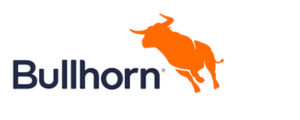
Want to maintain your clients and candidates’ relationship management?
It’s recruitment CRM software designed to improve sales and recruiter productivity, drive topline growth, and strengthen relationships with candidates, clients, and prospects.
The platform offers mobile accessibility, passive email tracking, and LinkedIn Recruiter integration for streamlined communication and data access.
Whether it’s managing leads, tracking opportunities, or strengthening relationships, Bullhorn equips you with the tools to transform your recruitment business.
Key Features:
- Data Privacy Module
- Client Portal
- Analytics
Pros:
- Mobile-powered selling capabilities for on-the-go access.
- Streamlined relationship management with centralised communication.
- Comprehensive reporting for data-driven decision-making.
Cons:
- Higher cost compared to some competitors.
- Limited customisation options for some features.
- No built-in email marketing tools.
- Occasional system slowdowns and glitches.
Pricing: Contact sales
Free trial: No
Capterra Review: 4.1
8. Crelate
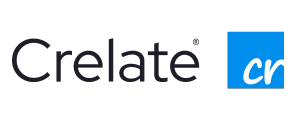
As the name suggests, create long-lasting relationships with your clients and candidates.
By managing that, you can make it last a long time.
Crelate is recruitment CRM software that helps recruiters attract, source, and engage top talent by streamlining communication and automating high-volume tasks.
The platform is fully customisable, allowing users to adapt it to their workflow.
It manages both candidates and customers without duplicates or lost records.
Crelate also provides powerful analytics and insights, including the ability to generate graphs, sales charts, and forecasts based on expected value and historical comparisons.
With Crelate, you can track communication effectiveness, measure candidate fit, and gain valuable insights to optimise your recruitment efforts.
Pros:
- Customisable workflow and data tracking
- Integrated communication tools for an efficient recruitment process
- Powerful analytics for data-driven insights and decision-making
Cons:
- Limited integration options with other software
- No mobile app is available for on-the-go access
- No built-in job board posting functionality
Key Features:
- Job portal
- Candidate sourcing
- Client Portal
- Crelate mobile app
Pricing:
- Business — $105 — per user /month
- Business plus — $153 — per user /month
- Enterprise — custom
Free trial: No
Capterra Review: 4.5
9. JobAdder
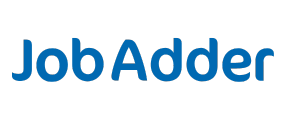
Don’t fade your clients and candidates’ relationships.
Use JobAdder to add joy to your recruitment management and relationship-building work.
JobAdder is designed to help your business grow its database and manage its recruitment process efficiently.
It has robust features such as opportunity management, business development pipeline, client and hiring manager collaboration, candidate sourcing and matching, and job creation and management.
With JobAdder, users can automate high-volume communication, nurture leads and contacts with personalised messages,
The platform also offers customisable templates, status updates, and record enrichment for streamlined account management.
Key Features:
- Account management
- Applicant Tracking
- Placement management
Pros:
- Comprehensive recruitment management system
- Customisable templates for personalised messaging
- AI and predictive search for efficient candidate matching
Cons:
- Limited reporting and analytics capabilities
- No mobile app for on-the-go access
- No integration with popular job boards
- No built-in time tracking or invoicing features for recruiters.
Pricing: Contact sales
Free trial: No
Capterra Review: 4.5
10. Pipedrive
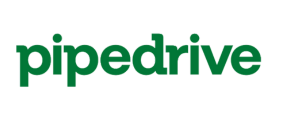
Seamlessly drive your relationship management work with Pipdrive recruitment CRM Software.
It’s designed specifically for recruitment, helping you attract top talent and streamline your hiring process.
It helps you attract qualified applicants by managing your talent pipeline and building a searchable candidate pool.
Pipedrive automates tasks like data entry and interview scheduling, frees up your recruiters’ time, and ensures efficient communication with both candidates and clients.
With features like workflow automation, reporting, and integrations with popular tools, Pipedrive equips you to make informed decisions and build strong relationships throughout the recruitment process.
Key Features:
- Candidate engagement
- Applicant tracking software
- Resource management
- Task management
Pros:
- The streamlined recruitment process with automation and centralised data.
- Improved candidate engagement and communication.
- Comprehensive reporting and analytics for informed decision-making.
Cons:
- No built-in onboarding features.
- Limited customisation options for reporting.
- No mobile app for on-the-go access.
Pricing:
- Essential — $9.90 — per user /month
- Advanced — $19.90 — per user /month
- Professional — $39.90 — per user /month
- Power — $49.90 — per user /month
- Enterprise — $59.90 — per user /month
Free trial: Yes (offers 15 days trials)
Capterra Review: 4.6
11. HubSpot CRM
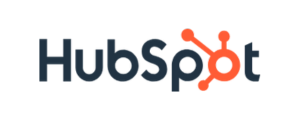
HubSpot CRM offers all the features necessary to track and manage candidates and schedule meetings. You can also use the platform’s free email tools to send personalized emails based on data from your contact lists, which is ideal for candidate outreach.
Key Features:
- Built-in meeting scheduler
- Email template builder & email tracking
- Contact conversation history
Pros:
- Provides real-time tracking and detailed reports on candidate progress.
- Handles large volumes of candidate information with no restrictions.
- Automates communication with candidates, reducing administrative tasks.
Cons:
- Limited customization compared to specialized recruitment CRMs.
- Advanced features require a paid subscription.
- Initial training may be needed for optimal use.
Free trial: Yes
Capterra Review: 4.5
Why iSmartRecruit Stands Out in the Current Recruitment Market?
As smart hiring pros, you should always look out for the best software in a saturated and competitive market.
Well, the best option is the iSmartRecruit, which goes beyond the standard functionalities to truly transform your recruitment efforts.
This helps you foster positive client-candidate relationships through its centralised candidate database.
iSmartRecruit is designed to make recruitment smarter and more efficient.
Our Recruitment CRM Software lets you Focus on Client and Candidate Relationships by having applicant tracking and AI-powered automation to automate repetitive tasks like candidate sourcing and qualification.
To free up your time to focus on building strategic relationships.
iSmartRecruit fosters seamless collaboration between recruiters, hiring managers, and team members, ensuring everyone stays on the same page throughout the hiring process.
Whether you’re a small startup or a large enterprise, iSmartRecruit offers a scalable solution that can be customised to meet your unique recruitment needs.
So, What’s the hold-up? To manage your relationships, go and request a FREE DEMO now! Our expert will guide you in getting the most out of our Top recruitment CRM software.
FAQs — Recruitment CRM Software
1. How does Recruitment CRM differ from ATS (Applicant Tracking System)?
When we talk about ATS, it focuses on managing the recruitment process and tracking applicants through the hiring while Recruitment CRM is more about managing relationships and nurturing applicants or candidates over time. Recruit CRM managing long-term relationships with candidates and clients.
2. What is the cost of Recruitment CRM software?
The cost of Recruitment CRM software depends on the provider and the features included; pricing models are monthly, annually or per user. Some providers offer free trials and demo.
3. Can Recruitment CRM software integrate with other tools?
Yes Nowadays, most Recruitment CRM software offers integrations with various HR technologies like Job boards and social media channels.
4. What features should I look for in Recruitment CRM software?
If talking about the best features of Recruitment CRM software, it include candidate management, automation, integration capabilities, customized dashboards and reports user-friendly interface and one more thing that software should align with your business needs.
5. Is Recruitment CRM software suitable for small businesses?
Yes, Many Recruitment CRM tools offer scalable solutions that help small and medium-sized businesses and provide the essential features to manage hiring efficiently, even with limited resources.
6. How do I choose the best Recruitment CRM software for my business?
While choosing the best Recruitment CRM software, you need to consider your hiring needs, budget, ease of use and customer support. It is also fruitful to take a demo or trial version to evaluate the software’s functionality before making a decision.
7. How secure is Recruitment CRM software?
Most Recruitment CRM software providers offer features like data encryption and secure login to protect sensitive data and comply with industry standards such as GDPR.
Originally published at https://www.ismartrecruit.com.


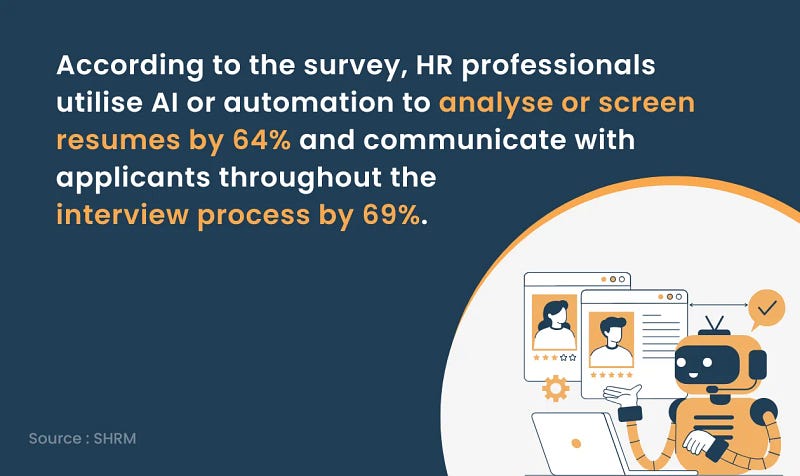


.png)


